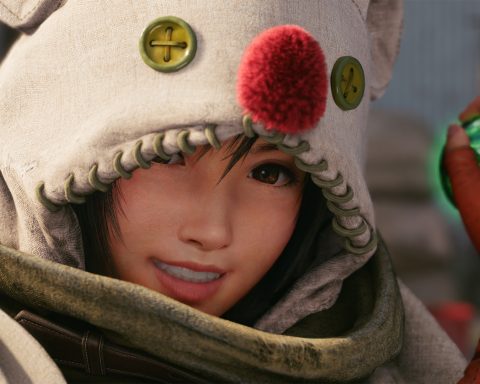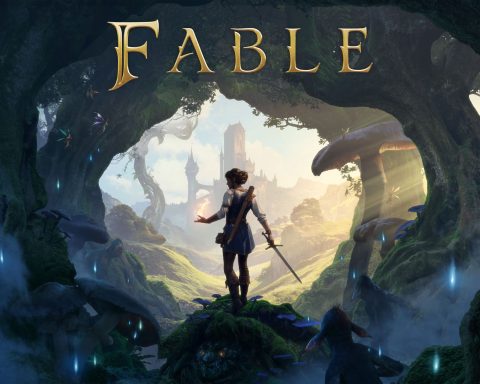I’m still working through Spelunky to review it. I want to give the game a fair go, and true to reputation, it’s beating me raw, so I’m not getting very far. I’m not even that good at the easy platformers. At this stage I’m not quite sure if I’ll ever play enough to be able to critically review the game.
When/ if that review comes, the game will get a very positive review and score, as I do believe that it’s a well made little game and while that difficulty will be off-putting for many, it’s the kind of game that develops a very faithful community. That said, I’m going to say this: I, personally, hate this game. If I was a victim in a Hostel movie, playing this game would be the way I was tortured. I haven’t wanted to break a controller in a game before, ever, but Spelunky had me winding my best baseball pitching action.
I’m going to use this as an opportunity to get up on one of those soapbox things and say: yes, I get that Spelunky is retro-flavoured right down to the core, but as authentic as it is, there are elements of game design that are best left in the 80s. We’ve developed better approaches to difficulty, for one thing.
 |
| Gonna die now |
For a game with a rogue-like approach to death (ie, back to the start, lose everything), a game that deliberately throws death traps that are unavoidable the first time you encounter them is not good game design – it’s a cheap and nasty trick to make the act of getting to the end of the game hard. That technically qualifies as ‘high difficulty,’ but it’s a literal definition of the phrase. There’s no real challenge in learning through failure. That’s rote-learning and a frustratingly unreasonable way to pad out what is a very short game.
It’s not that I’m against difficult games – I love Demon’s Souls and Dark Souls, but there’s a difference: the Souls games are challenging. Demon’s Souls is a cruel game, but ultimately it’s a fair one – there’s few, if any, moments of “Surprise! Bang! Dead!” Almost every time when my hero was run through by a demon or took a diving lesson off a cliff face I felt that it was my fault that he perished. And, as hard as Demon’s Souls is, it’s also not so brutal to reset you to the start every time you do die. At times it’s slow progress, but the point here is that every step of the way there is genuine progress in a Souls game. Where a Souls game rewards perseverance and problem-solving, Spelunky simply throws you into another unavoidable meat grinder.
 |
| Cruel, but fair |
Other modern difficult games share similar traits to the Souls games – they’re not fearful of being overwhelming, but at the same time they present solutions to players who are quick-witted enough to think through the problem. The difficulty in modern games comes from presenting players with what essentially amounts to complex puzzles. Retro (and retro-themed) games are difficult for a very different reason – they’re a test of reflexes and pattern memorisation.
So I guess what I’m saying here is I prefer games that are difficult by being mentally stimulating. Spelunky hasn’t stimulated me and it’s artificially difficult, and as such I hate this game.








If you used comparisons between some mechanics of Dark Souls and Spelunky, then this article would have been absolutely solid. Otherwise it's not poorly written article, but it's entirely opinionated and it's much less of an editorial.
Can't stand and won't give positive recommendations to games with fake difficulty. I probably won't review most of them either as I wouldn't get far enough (or want to) to give the game a fair dose of judgment.
I'm not sure how else to say it – Spelunky features random, unavoidable death (until you spend the time replaying the same levels to understand exactly how each death trap works and what you need to do to avoid them.
Souls games are challenging, but if you approach the challenges with the right frame of mind, the games are designed in such a way that they're not actually "hard." There is almost nothing in those games that will kill you without warning, and again, you'll not lose everything if you do die. Death is a learning experience, and you'll still be making progression. With Spelunky death is a punishment and thanks to random level design you'll restart quite literally from scratch.
And yes, it's entirely opinion. That's why there's an "I" in the headline 😛
What I meant to convey was that you should have given specific examples rather than just generalizations. Generalizations are good at conveying an idea, but proving specific points needs some solid data/examples.
I could write a book on the two different approaches to difficulty – in fact I may well do that. But in this instance I was more interested in conveying an idea than proving anything.
Specifics are for features, not brief editorials.
I hate when games get away with passing off difficulty for challenge (like Johnny Kung Fu :P). The reason that I like Mario is that Miyamoto designed it intelligently enough that it at least always feels like it's your fault when you die, so you want to keep playing because you think, "Oh, I know what I did wrong. I just won't do that this time." With Spelunky, Johnny Kung Fu, what have you, it's like, "The developers just wanted to make it take as long as possible for me to beat it/see everything it has to offer. Oh, that's no fun."
I agree. It's incredible just how well the early Mario games hold up in terms of level design. They are perfectly balanced to be challenging, but not unfairly so.
I dislike when game developers go out with the intention to "beat" the player. That's not a mutually beneficial relationship then.
I have video files sitting around of World at War Wii on Veteran, I would guess that difficulty setting would probably be put in the same category as artificial difficulty.
Veteran = 1000000000000000000000000000000000000000000000000000000 grenades being tossed by one enemy, while the other three enemies are tossing the same number randomly, AT YOUR EXACT LOCATION!
It doesn't matter if you are hiding, they haven't spotted you, and you can sneak up on them. First time the character breaths wrong in the game, and ONE enemy spots you, the grenade testing range opens up.
It really is pretty hilarious to witness.
As for "mentally stimulating" I tried out VVVVVV last night for the first time, and really enjoyed the demo.
Cogs is mentally stimulating as well, but clicking the same panels in 20,000 different ways trying to figure out a puzzle is insane, especially when you realize how each puzzle can be solved with just a few clicks.
"Spelunky features random, unavoidable death (until you spend the time
replaying the same levels to understand exactly how each death trap
works and what you need to do to avoid them."
Isn't that the same with other difficult games? You learn from your mistakes, and so what may seem to be a difficult game becomes somewhat manageable.
Also, I think in a game like this, which encourages you to get to the exit as fast as possible, perma-death isn't a punishment of sorts, it's just death. It's not like you've spent an hour getting to a point in the level, then you fall into some spikes and you're sent back an hours progress.
I've only played a little of Spelunky, and to be honest I didn't mind it. The randomised levels add to the uncertainty of death, and although you may know all the ways you can die, you still don't know what's to the side, above or below you. I don't think it's far to compare it to a game such as Demon/Dark Souls, as although those games both present high difficulty levels, they're both very different in the way they handle death. Rather, I think Super Meat Boy is a better game for it to be compared to.
I concur.
Well, I greatly dislike Meat Boy too. I don't like games that are hard unfairly. I like challenging games, but only when I'm given a fighting chance that doesn't rely on failing a whole bunch of times first. That's why I mentioned Dark Souls. Witcher 2 is similar, come to think of it.
I happen to love VVVVVV. Generous checkpoints go a long way with that.
Yay, someone else who dislikes Meat Boy! 😛 Sorry, it's just that sometimes I feel all alone in that.
Like Fez, I'm really hoping that this makes the jump to PC after Microsoft's 6 month exclusivity ends!